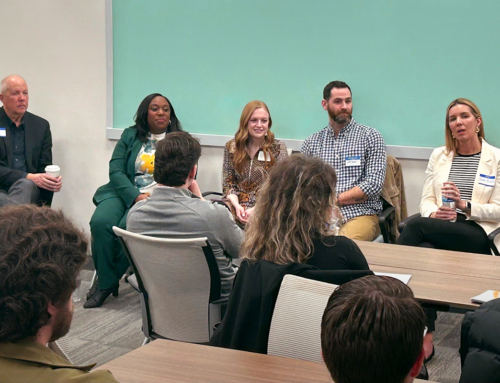In just a few weeks, Ohio Governor Mike DeWine and Ohio Department of Health Director Dr. Amy Acton have become Ohio’s celebrated chief communications officers. Featured in national media, Facebook fan pages, hashtags, t-shirts and daily wine o’clocks, the duo has amassed a loyal fan base who depend on and respond to their leadership. Organization leaders – especially those navigating an evolving crisis for which there is no clear plan – can take 8 lessons from the DeWine/Acton playbook for delivering high-stakes messages to stakeholders.
- Good Communicators Avoid Surprises. Based on office conversations before social distancing was a thing, statements were often prefaced with “I wouldn’t be surprised if …”. As in, “I wouldn’t be surprised if schools closed.” Or, “I wouldn’t be surprised if we have to work from home.” Why? DeWine often introduces potential scenarios before they happen and is candid about when he plans to make a decision. He gives people time to prepare for (mentally, if nothing else) or digest an idea, allows for feedback and demonstrates consistent follow through.
- Good Communicators Stay in Their Lane. DeWine is not a doctor and therefore, does not offer medical advice. Acton is not setting government policy and therefore, does not speak to school closures or unemployment rates. Each knows which messages they have permission to deliver. And each refers to the other on questions outside of their expertise. The takeaway for corporate leaders: you aren’t expected to answer every question. You are expected to surround yourself with the right resources and coordinate your response.
- Good Communicators are Calm and Deliberate. In reviewing social media threads regarding the daily briefings, one message consistently appeared in reference to Acton … “I could listen to her all day.” Some even went so far as to call her soothing. Tone matters. It’s not only what you say, but how you say it. Composed leaders – those who deliver messages calmly and deliberately – come across as thoughtful and in control, two reassuring characteristics in times of crisis.
- Good Communicators Regularly Inform. If companies in crisis create a communications gap, someone – an opportunistic competitor or disgruntled/panicked/attention-seeking employee, customer or community member – will fill it. To establish a cadence to communications, DeWine and Acton hold daily 2 p.m. briefings. Information-seeking constituents know when they will get up-to-the-minute updates while the governor’s office reduces the volume of questions coming from email, phone and social media that need managed. The briefings are so popular they’re trending … check out #snackinwithacton and #winewithdewine.
- Good Communicators Tackle the Tough Stuff. DeWine and Acton know life is tough right now. They know we’ve lost our routines. Our social networks. Our jobs. In some cases, our health. At 2 p.m. each day, they know they’ll have more bad news to deliver. And each day, they step up and lean into it. Good communicators know, by truthfully and transparently delivering the tough stuff, they will earn the trust in the long run.
- Good Communicators Use Simple, Consistent Messages. Healthcare and government are laden with terms and acronyms the average person won’t understand. DeWine and Acton deliberately choose to communicate complex subject matter simply and directly, leaving little room for interpretation. They share these messages over and over, understanding it takes repetition for retention. Flatten the curve.
- Good Communicators Use Relatable Examples. Good communicators know that sometimes the best way to reinforce a message is with a relatable example. To explain why Ohio’s website has been slow, the team used the example of a family trying to access Wi-Fi within their home at the same time. No tech jargon. Both Acton and DeWine have used personal anecdotes to reinforce safe social distancing.
- Good Communicators are Human. In times of crisis, people don’t need superhuman leaders. There’s comfort in knowing that the deliverer of difficult news also experiences feelings such as sadness or uncertainty. That they are trying their best to rise to the occasion but feel they are falling short. That they, too, have family or friends or community members who depend on them to do the right thing. Don’t let the professional overshadow the personal.








